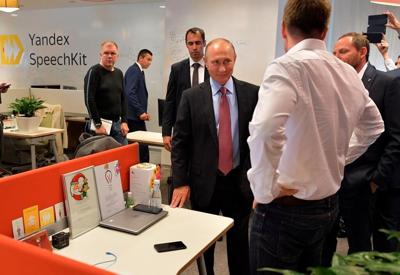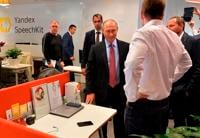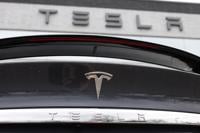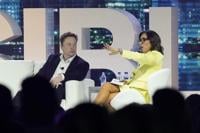FRANKFURT, Germany (AP) — The Dutch parent of pioneering Russian tech company Yandex is selling its operations in the country at a steeply discounted price of just over $5 billion to its Russia-based managers and oil company Lukoil, one of the biggest deals for Western-held companies to exit Russia since the invasion of Ukraine.
The price reflects a 50% discount that Moscow imposes on companies from “unfriendly” countries like the Netherlands as a condition of , according to a statement Monday from Nasdaq-exchange listed Yandex NV.
It follows drawn-out negotiations that show the complexities if they want to unload their Russian businesses, which many have been struggling to do since President Vladimir Putin's February 2022 invasion of Ukraine and the sweeping financial and economic sanctions that followed.
Yandex, founded in 1997 as Russia's answer to Google and Yahoo, serves Russian-speaking customers through its search engine and with widely used apps for food delivery, car-sharing and shopping.
Co-founder Arkady Volozh, who had earlier moved to Israel, resigned as CEO in 2022 after he was hit with European Union sanctions. He subsequently condemned Russia's invasion as “barbaric.” The Nasdaq exchange suspended trading in Yandex shares days after the invasion.
“We can welcome the agreement reached by the shareholders on the sale,” Kremlin spokesman Dmitry Peskov said in a conference call with reporters. “The company’s Russian management will remain as the main owner. Of course, it’s important for us that the company continues its operations in this sphere.
"We know that the negotiations were long, and we welcome their completion,” he added.
The sale in cash and shares worth 475 billion rubles would transfer Yandex's core business — representing more than 95% of its revenue, assets and employees — to the group of up to 50 managers, Lukoil and business entities owned by investors Alexander Chachava, Pavel Prass and Alexander Ryazanov.
The 50% discounted sale price was based on the average value of Yandex shares on the Moscow exchange for the three months ending Jan. 31 — $10.2 billion. That's after shares had already fallen by more than half in ruble terms since their peak before the invasion.
After the sale, Yandex NV would be left with its international businesses — employing 1,300 people — including self-driving technology and generative artificial intelligence as well as a data center in Finland.
Yandex NV Chairman John Boynton said the company had faced “exceptional challenges” since the start of the war.
“We believe we have found the best possible solution for our shareholders, our teams and our users in these extraordinary circumstances," he said in a statement.
Boynton said the sale would ”allow shareholders to recover some value for the businesses that we are divesting, while unlocking new growth potential for the international businesses we will retain.”
Hurdles for businesses to exit Russia include finding partners who are not under U.S. or European sanctions as well as avoiding banned financial transactions. None of the purchasers have been sanctioned, Yandex NV said, and the cash part of the transaction would be conducted in Chinese yuan outside of Russia.
Companies fleeing Russia not long after the war began ended joint ventures and wrote off stakes worth billions. For instance, to a , while France’s Renault took a symbolic single ruble for its majority stake in Avtovaz, Russia’s largest carmaker.
Others are still struggling to leave because of the hurdles put in place by Putin’s government, and some are simply staying put.
The or businesses belonging to Western corporations in Russia, including Danish beer maker Carlsberg's Baltika Breweries, French yogurt maker Danone, Finnish energy company Fortum and Germany’s Uniper utility.







































